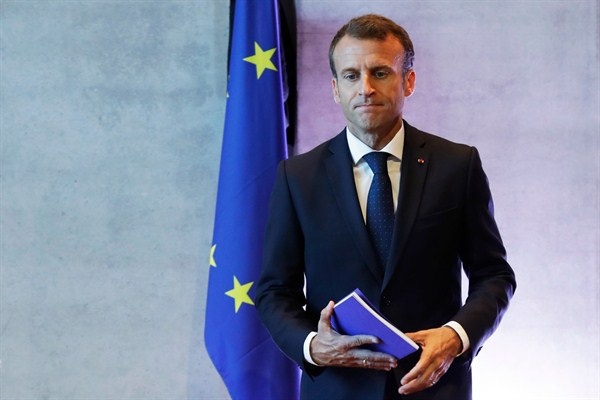PARIS—French President Emmanuel Macron is probably glad to be in New York this week. His meeting with U.S. President Donald Trump—always a risky affair given Trump’s unpredictable bent—surprisingly went off without a hitch. And his address to the United Nations General Assembly offered him another high-profile opportunity to burnish his global image as the defender of the multilateral order.
But the real appeal of the trip for Macron is that it took him out of France, where a series of self-inflicted wounds have dented his approval ratings. After winning the presidential election in April 2017 with a lopsided 66 percent of the vote, Macron secured an overwhelming parliamentary majority, all as a political upstart without an established party. Since then, he has pushed through reforms to the country’s labor code, historically the third rail of French politics, while also tightening public spending. If the intended payoff for cleaning up the country’s finances—German support for his European Union reform proposals—failed to materialize, he has nonetheless improved France’s leverage within the EU over some of its biggest debates.
At home, Macron campaigned on a platform that combined a Scandinavian-inspired “flexicurity” approach to employment with an embrace of entrepreneurship, in order to reinvigorate France’s economy with a dose of start-up spirit. But his schedule for enacting his domestic agenda—which put employers’ flexibility to hire and fire ahead of an enhanced security net for workers facing a more precarious labor landscape—as well as an initial round of tax cuts that favored the wealthiest have earned him the epithet “le president des riches,” or president of the rich. Meanwhile, unemployment has remained stubbornly high at 9 percent, and the economy has grown less than expected, at 1.7 percent.

